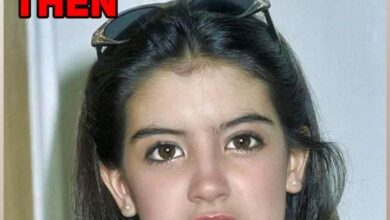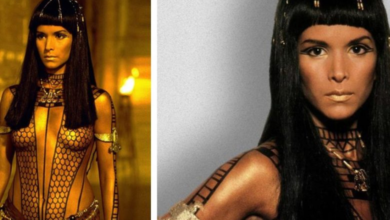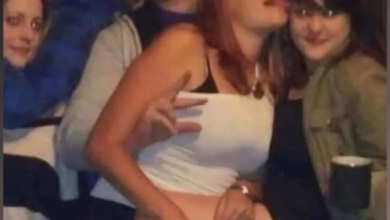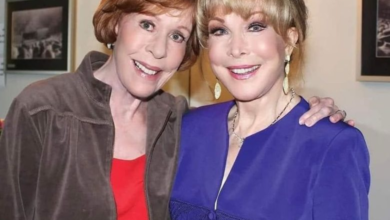You Say I’m Not Your Dad? Then Let’s Discuss What I Actually Am

She said it like flicking a switch: “You’re not my dad.”
It didn’t make me angry — just emptied me out. Ten years of teaching her to ride a bike, sitting up through fevers, clapping at school plays, patching scraped knees, and listening through teenage storms — and still, I was just Mike.
So this time, I didn’t stay silent. I stood my ground.
“In that case,” I said evenly, “you can’t keep throwing punches and expect me to pretend it doesn’t hurt.”
Her eyes widened. She wasn’t used to me saying anything back. Then came the door slam. Curtain down.
I sat at the kitchen table, coffee gone cold, staring at the same chipped mug until the light outside shifted. My wife, Claire, found me there. “She’s not mad at you,” she said softly. “She’s mad at everything. At her dad. At herself. At me — because I stayed.”
Understanding didn’t make it easier. That night, I barely slept.
The next morning, I left before anyone woke up. No pancakes. No “see you later.” For days, the house felt like a ceasefire after a war — quiet, tense, heavy.
Then the school called. Missed assignments. A drop in grades. Two skipped classes. Not like her. Claire’s face said it all: anger and fear in equal parts.
I wrote a note and stuck it to her bedroom door: “Want to talk? No lectures. Just listening.”
An hour later, she appeared in my office doorway, arms folded, eyes wary.
“I’m failing chemistry,” she said flatly. “And I hate it. And I don’t care.”
“Okay,” I said.
She blinked. “That’s all?”
“You said no lectures.”
She snorted. “You’re weird.”
“Hazard of the job,” I said, and she almost smiled before it slipped away again.
“Everyone expects me to have it together. Straight A’s, good attitude, perfect daughter. Half the time, I don’t even know who that’s supposed to be.” She hesitated. “My dad barely calls. And when he does, it’s about grades. Not… me.”
“You’re not your report card,” I said quietly. “You’re a person. I’m sorry if I’ve made you feel otherwise.”
“You didn’t,” she said. Then after a pause: “Not really. You just… try too hard sometimes.”
“Maybe,” I said. “But it’s because I care. I just don’t always get the delivery right.”
She looked up. “You’re not my dad,” she said again — but this time, her tone was different.
I waited.
“But you’ve done more for me than he ever did.”
It didn’t erase the sting, but it stitched something back together.
From then on, little things shifted. She’d push her chemistry book toward me with a sigh that meant “help.” We’d watch a movie, and she’d mock my terrible snack choices. She started inviting me into her world — a small, cautious trust.
At her art show, she scanned the crowd until she saw us. Her painting showed a tree with two trunks growing from the same roots — one older, one younger, entwined. The caption read: “Not all family is by blood.”
“What’s it mean?” I asked.
“Just something I’ve been thinking about,” she said. “Some people grow because someone never stops showing up.”
I didn’t press. “It’s beautiful,” I said.
A few days later, she handed me a Father’s Day card. “You might not be my dad. But you’re my Mike. And that’s more than enough.”
It lives in my wallet to this day.
Years rolled on. She graduated. I carried boxes to her dorm, fixed her lamp, stocked her fridge. At the door, she hugged me hard.
“I know I was rough on you,” she said.
“It’s part of the job description,” I smiled.
“No. Really. You didn’t give up when I practically begged you to.”
“I promised your mom I wouldn’t,” I said. “And I promised myself I’d mean it.”
She nodded. “You did.”
She built a life. Found someone good. Got engaged. At the rehearsal dinner, her biological father gave a heartfelt speech about second chances. I clapped for him — people can change.
Then she stood, glass trembling slightly. “There are many kinds of fathers,” she said. “Some you’re born with. Some you find. Some just show up and stay. Mike didn’t replace anyone — he became what I needed. He taught me to drive, came to every game, waited in the rain for practices, believed in me when I didn’t believe in myself. Tomorrow, he’s walking me down the aisle — because he’s the one who’s always walked beside me.”
I couldn’t breathe. Didn’t need to.
Before the ceremony, I asked, “Nervous?”
“A little,” she said. “But not about this part. You’re the steady one.”
We walked, step by step, through those doors. And I realized I didn’t need the title “Dad” to have earned it.
Years later, she called from a hospital bed: “Can you come? Please?”
First flight out. I arrived in time. The baby came early — tiny, perfect, fists curled tight. She handed her to me first.
“This is Ava,” she whispered. “I want her to know what it feels like to be loved by someone like you.”
I’d do it all again — the slammed doors, cold dinners, the ache of being almost but not quite “Dad.” Every moment was worth it.
Now, when I visit, a small comet hurtles down the hallway yelling, “Grandpa Mike!” like I’m a superhero. Maybe I am.
Life doesn’t hand out titles. It offers chances. You show up. You stay. You love without needing credit. And someday, it comes back — in a painting, a card, a wedding speech, or a tiny hand wrapped around your finger.
If you’re quietly loving someone right now, keep doing it. You might not hear “thank you” today — but one day, you’ll feel it, clear as a heartbeat.



